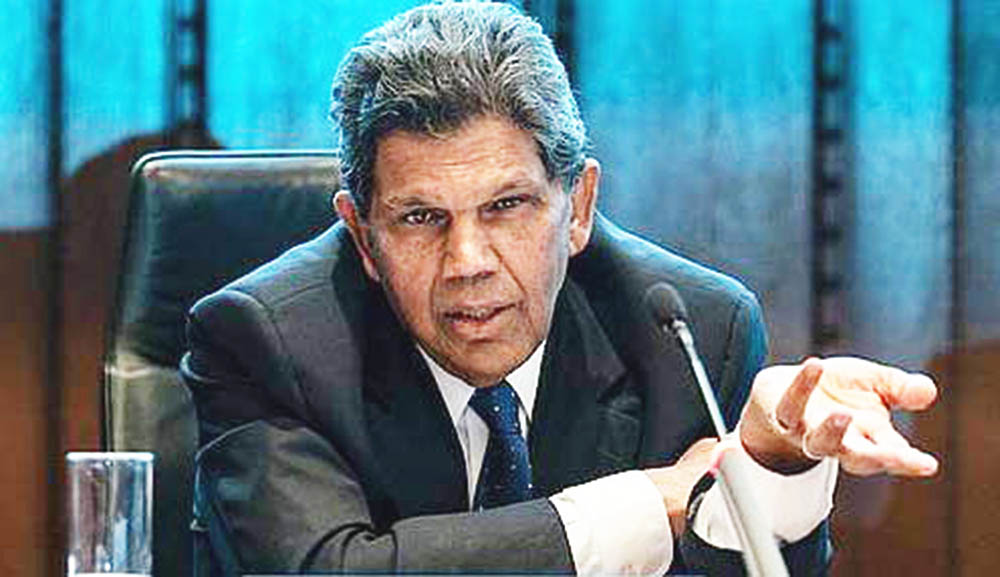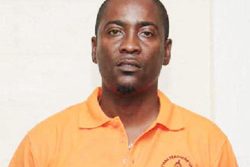By Dr Bertrand Ramcharan
Former Chief Speech-Writer of the UN Secretary-General
The Economist of May 20-26, 2023, carries a riveting article, “How to prevent a third world war”, based on an eight-hour interview with veteran global strategist, Dr Henry Kissinger, who turns 100 during the month of May. It has searching insights into the current great-power predicament. During its forthcoming membership of the UN Security Council, Guyana will be challenged by the issues Dr Kissinger addresses.
Kissinger considers that we’re in a new world fraught with dangers. In Beijing they have concluded that America will do anything to keep China down. In Washington they are adamant that China is scheming to supplant the United States as the world’s leading power: “Both sides have convinced themselves that the other represents a strategic danger. We are on the path to great-power confrontation.” In the midst of this, China is seeking to create its own world order, in so far as it can.
Kissinger is alarmed by America’s and China’s intensifying competition for technological and economic pre-eminence. He thinks that Artificial Intelligence (AI) will become a key factor in international security within five years and that “We live in a world of unprecedented destructiveness.” He fears that AI is about to super-charge the Sino-American rivalry: “We are at the very beginning of a capability where machines could impose global pestilence or other pandemics, not just nuclear but any field of human destruction.”
Kissinger recognizes that AI cannot be abolished. China and America will therefore need to harness AI’s power militarily to a degree, as a deterrent. But they must also limit the threat it poses: “I think we have to begin exchanges on the impact of technology on each other.” AI must not be pushed to its limits
“Around the world”, he added, “the balance of power and the technological basis of warfare are shifting so fast and in so many ways that countries lack any settled principles on which they can establish order. If they cannot find one, they may resort to force. We’re in the classic pre-world war one situation where neither side has much margin of political concession and in which any disturbance of the equilibrium can lead to catastrophic consequences.”
In Kissinger’s view, the fate of humanity depends on whether America and China can get along. He believes the rapid progress of AI, in particular, leaves them only five to ten years to find a way. He thinks that it is possible to create a world order on the basis of rules that America, Europe, China and India could join. He stresses the need for balance and moderation. “Institutionalise that. That’s the aim.”
Kissinger thinks that if America wants to find a way to live with China, it should not be aiming for regime change. A collapse of the communist regime would lead to a civil war that would eventually harden into ideological conflict and only add to global instability: “It’s not in our interest to drive China to dissolution.”
Kissinger acknowledges that human rights matter, but disagrees with putting them at the heart of international security policy. He sees the Chinese system as more Confucian than Marxist. In any event, China’s leadership resents Western policymakers’ talk of a global rules-based order, when, according to China, what they really mean is America’s rules and America’s order.
Kissinger’s expressed model for pragmatic thinking is India, which, he thinks, believes that foreign policy should be based on non-permanent alliances geared to the issues, rather than tying up a country in big multilateral structures. India is an essential counterweight to China’s growing power. Yet it also has a worsening record of religious intolerance, judicial bias and a muzzled press.
The urgent test in the management of the Sino-American relationship will be how China and America behave over Taiwan. A Ukrainian-style war there would destroy the island and devastate the world economy. War could also set back China domestically and its leaders’ greatest fear remains upheaval at home.
Kissinger would start by lowering the temperature and then gradually build confidence and a working relationship. He thinks that the only way to prevent ruinous conflict is through hard-headed diplomacy, ideally fortified by shared values. He advocates the establishment of a permanent dialogue between China and America. He would like to see a small group of advisers, with easy access to each other, working together tacitly.
“I think,” he adds, that we have to begin exchanges on the impact of technology on each other. We have to take baby steps towards arms control, in which each side presents the other with controllable material about capabilities.” He believes that the negotiations themselves could help build mutual trust and the confidence that enables the superpowers to practise restraint.
Kissinger is of the view that world leaders bear a heavy responsibility. They require the realism to face up to the dangers ahead, the vision to see that a solution lies in achieving a balance between their countries’ forces, and the restraint to refrain from using their offensive powers to the maximum. It is an unprecedented challenge and the future of humanity depends on getting it right.
Guyana’s forthcoming membership of the UN Security Council will require it to think through and articulate strategies and policies on these issues. Global responsibility thus beckons to Guyana on the Security Council.
There was a time when Guyana’s foreign policy, led by Shridath Ramphal for example, had the depth of intellect, the breadth of vision, and the skills of advocacy to rise to challenges such as these. Guyana now looks expectantly to its contemporary foreign policy leadership.






